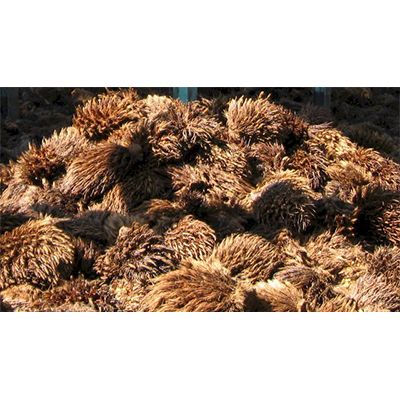


How to Recycle Empty Fruit Bunches from Palm Processing: Charcoal Making
Empty Fruit Bunches (EFB), a significant byproduct of the palm oil industry, present a unique opportunity for recycling and sustainable waste management through the production of charcoal. This eco-friendly process involves several stages, technologies, and benefits that contribute to both environmental conservation and resource optimization.
Introduction to Empty Fruit Bunches (EFB) in Palm Processing
Overview of Empty Fruit Bunches
Derived from the palm oil extraction process, Empty Fruit Bunches (EFB) consist of fibrous materials left after the extraction of palm oil from the fresh fruit bunches. These fibrous remnants hold potential for conversion into a valuable resource.
Importance of EFB Recycling
Recycling EFB is pivotal in reducing waste and environmental impact in the palm oil industry. Repurposing these remnants into charcoal minimizes the burden on landfills and supports sustainable waste management practices.
Charcoal Making Process from Empty Fruit Bunches
Preparing Empty Fruit Bunches for Charcoal Making
The process begins with the preparation of Empty Fruit Bunches for charcoal production. This involves shredding the EFB to optimize surface area and drying the material to reduce moisture content, ensuring effective subsequent conversion.
Conversion Process: Pyrolysis
Pyrolysis, a thermal decomposition process, is employed to convert the prepared EFB into charcoal. Operating in an oxygen-free environment, the EFB is subjected to high temperatures, causing it to break down into charcoal.
Equipment and Technology Used in EFB Charcoal Production
Specialized Machinery and Tools
The process requires specialized machinery such as pyrolysis reactors, shredders, and drying units. These tools are integral in the preparation and conversion stages, ensuring an efficient and controlled process.
Advanced Techniques and Technologies
Advanced techniques used in modern charcoal maker machine, including precise temperature controls, effective gas collection systems, and efficient heat transfer mechanisms, play a significant role in ensuring a productive and environmentally friendly charcoal production process.
Environmental and Economic Benefits of EFB Charcoal Production
Sustainable Waste Management
The conversion of EFB into charcoal significantly contributes to sustainable waste management in the palm oil industry. This repurposing approach lessens the environmental impact of waste disposal.
Economic Viability and Resource Recovery
In addition to its environmental benefits, EFB charcoal production showcases economic viability by transforming a waste product into a valuable resource. This contributes to resource recovery and reduces overall waste disposal costs.
Applications and Uses of EFB-derived Charcoal
Industrial and Commercial Applications
The charcoal derived from EFB finds extensive usage in various industries such as energy production, agriculture, and metallurgical processes. Its high calorific value and carbon content make it an attractive resource.
Environmental Benefits and Sustainability
Utilizing charcoal derived from EFB lessens the dependency on traditional charcoal sources, thereby aiding in the preservation of forests and natural habitats. This approach aligns with sustainable environmental practices and contributes to environmental conservation.
Challenges and Future Developments in EFB Charcoal Production
Technological Advancements and Innovations
Continual research and development efforts aim to improve the efficiency and output of EFB charcoal production. Advancements in technology are crucial to ensuring a more sustainable and efficient process.
Overcoming Challenges for Increased Efficiency
Challenges such as operational costs, technological limitations, and market acceptance must be addressed to enhance the efficiency of EFB charcoal production. Overcoming these challenges will pave the way for greater sustainability in waste management.
Repurposing Empty Fruit Bunches into charcoal presents a sustainable and eco-friendly solution, benefiting both the palm oil industry and the environment. The process not only aids in waste reduction but also fosters resource recovery, illustrating a promising approach to waste management and charcoal production.
